Citadels
It is generally built in a strategic point of a city, aiming for its protection. The citadel may sometimes partially or entirely incorporate an existing castle in this city.
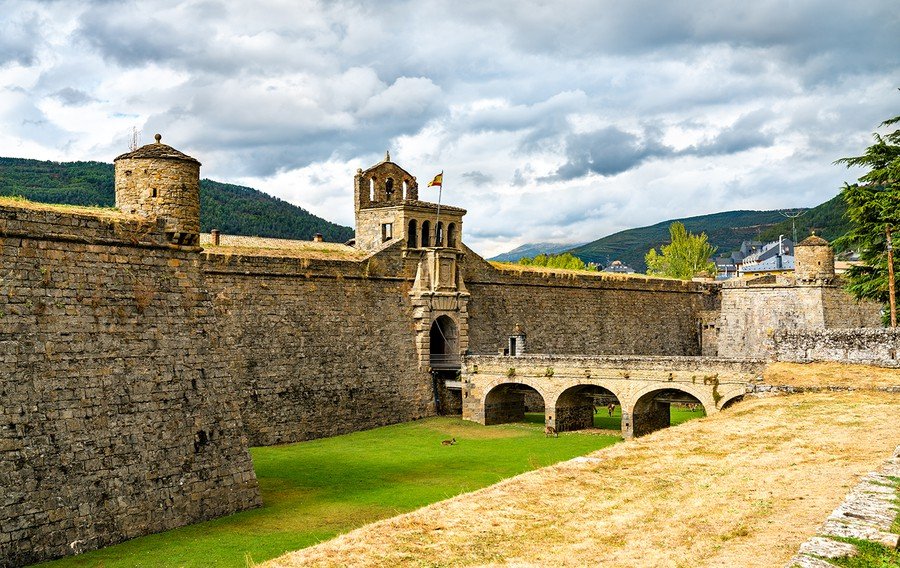
A famous example is that of Barcelona, where a large citadel was built in 1714 to intimidate the Catalans. Currently, this old citadel is the main park of the city, the Parc de la Ciutadella.
Game Data
Citadels is a game for 2 to 8 players, aged 10 and up, designed by Bruno Faidutti. Andrew Bosley and Simon Eckert are responsible for the art of the Revised 2nd Edition, which I am using for this review.
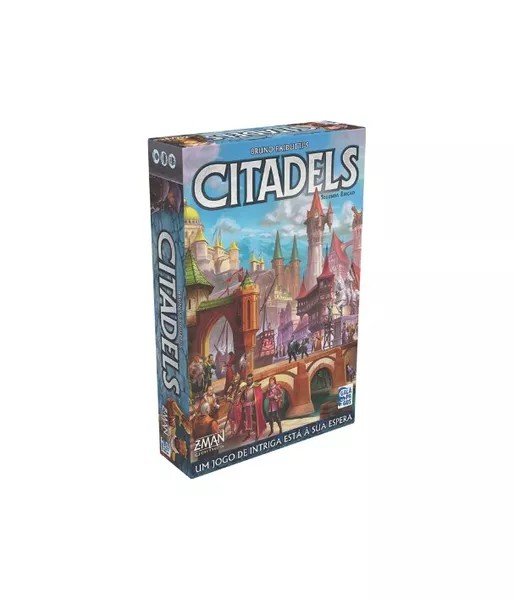
Citadels is from 2000 and was released by Z-Man Games.. It uses mechanics such as collecting sets, players with different abilities, variable phase order, bets and bluffs, losing a turn, and action selection. In short, the famous "salad" of mechanics, but in this case, it works very well.
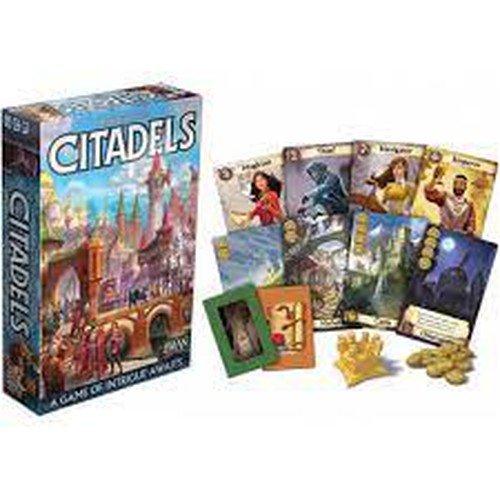
This new version, or rather, the Revised 2nd Edition of 2021, comes with more characters, allowing for new configurations. There are 27 characters in total, 8 from the original Citadels, 10 from the Dark City expansion, and 9 new characters created exclusively for this edition. In summary, this 2nd Edition allows for different levels of difficulty, intensity, and play styles.
The Game
In Citadels, we basically have to build various districts with the help of some characters to achieve the position of Master Builder of the kingdom. To build, we obviously need gold, which we can obtain legally or not... in Citadels, anything goes!
The turn unfolds as follows: there are 8 characters available in a character deck, the player with the crown (starting with the oldest player at the table) takes this deck and secretly chooses a character, passes the rest to the player on the left, and so on until the last player; this is called the Choosing Phase.
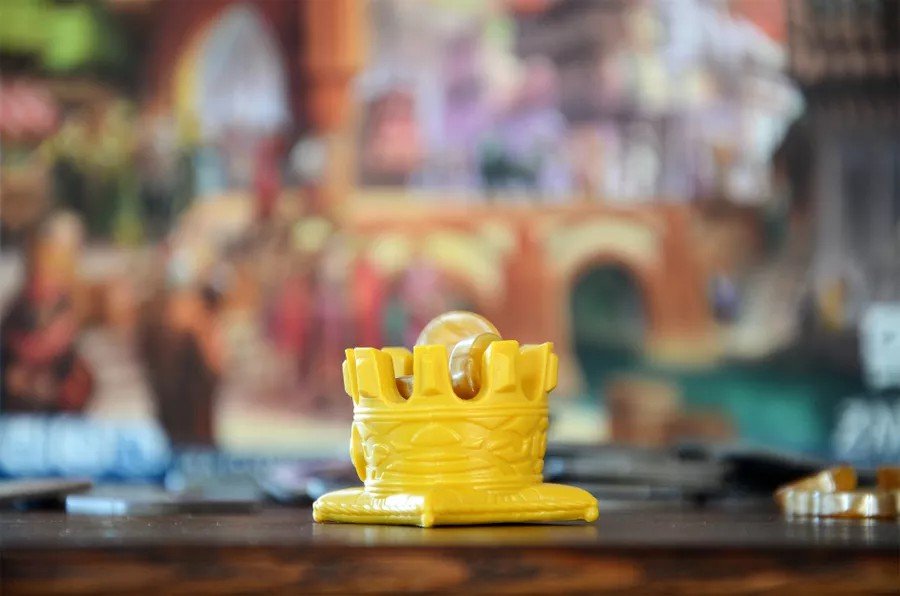
You may have noticed that if we have 8 characters and sometimes may not have that number of players, depending on the number of players, some cards will be removed before the Choosing Phase. Some of these cards will be "closed," and others "open." This is part of the game's strategy and also varies according to the number of players.
And I know what you must be thinking: that the penultimate player will obviously know what he is passing to the last player, and that will take all the fun out of the game. Wrong: regardless of the number of players, 1 card is always removed and kept "closed" before the Choosing Phase; it will be available for the last player to choose between these 2, so the whole thing was well thought out. The tension remains.
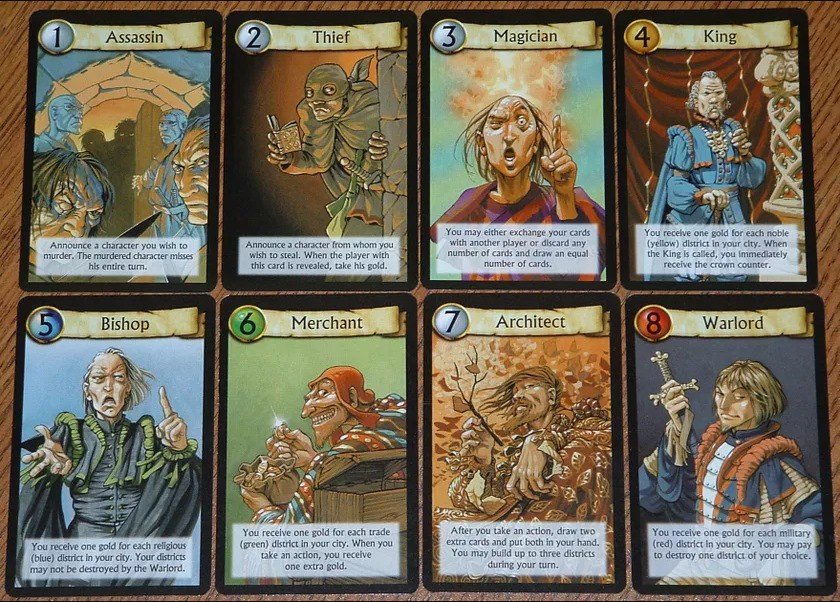
Still, regarding the Choosing Phase, each character gives you a different ability: it allows you to kill another character, making them lose their turn, steal all the gold from a character, swap the district cards in your hand, earn more gold, build more, or destroy another opponent's district.
These are some of the 27 abilities available in the game; in other words, this is highly strategic and is linked to what you have in your hand to build, what you already have built, the amount of gold you have, and some other variables that make the game have several possibilities.
After choosing the characters, it's time for the Turn Phase, and unlike what we're used to, the turn in Citadels doesn't follow the clockwise (or counterclockwise) direction. Each character has a number associated with it, a rank (from 1 to 8), which the player with the crown calls out one by one in ascending order, and they then take their turn with the following options:
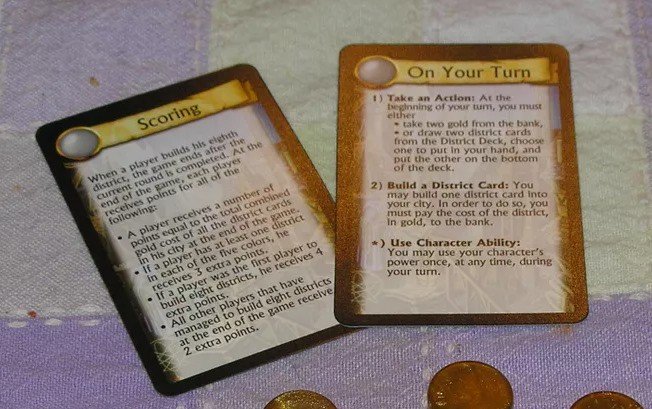
But wait, each stage of the turn has its "intricacies"; it must be done carefully and well thought out. Let's see: collecting gold is good and is the legitimate way to get means to build (or destroy) districts, but if you have no good options in your district hand to build, it's better to opt for taking district cards; this must be well thought out.
Even more, about the districts, they are of 5 different types: noble, religious, commercial, military, and special. Some of them have different abilities and score at the end of the game. Their variety also helps in the final score. Keep an eye on this!
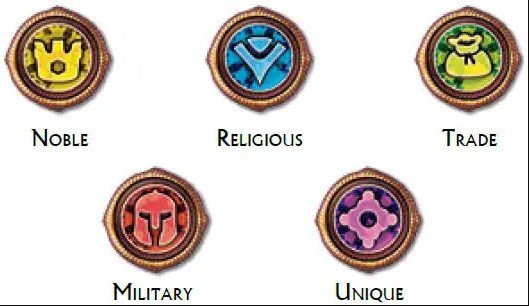
Now, about building a district, remembering that the building limit on your turn is 1 district, it is optional, but no less important to choose well which district to build because you must take into account the cost of the district to be built, a value that will be converted into points at the end of the game, the type of district (already mentioned here), and how much gold you have available.
Make the right choice because some of these districts will give you abilities in addition to points at the end of the game.
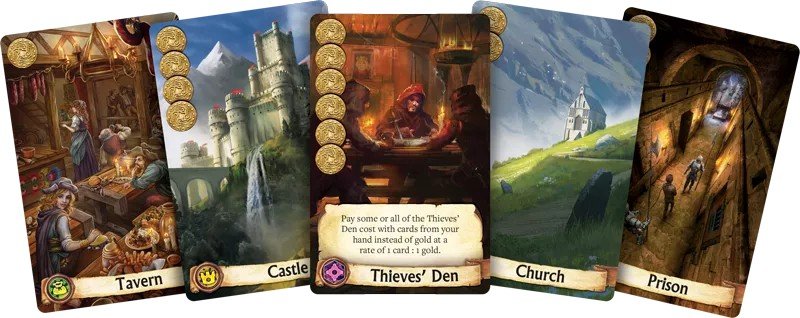
And now, if you choose to, it's time to use your character's ability. Some characters only allow you to use their ability at the end of your turn, and this will be clear on the character card, but if it is not specified, you can execute your character's ability at the beginning of your turn. It's good to really know what your character is capable of to get the most out of it.
Detail: if your character was killed by the Assassin, when you are called by the player with the crown, you simply do not execute your turn. Tough life. After that, your turn is over, and the player with the crown calls the next character.
That was a turn of Citadels!
End of the Game and Scoring
The end of the game is triggered as soon as a city has 7 or 8 districts (depending on the number of players). Your city is complete, and the game will end after the end of the current round.
The scoring is simple and objective:
After counting the points, the player with the most points wins. If there is a tie, the tied player who revealed the character with the highest rank in the last round is the winner.
That's it!
Strategic Tips
Citadels always maintains the famous "good tension" throughout the game because every turn is the excitement of not knowing what characters your opponents are selecting and how the turn will unfold. Each turn is like everything is "reset," and you have to plan everything again.
So, the first tip is: keep an eye on the game, on the constructions your opponents are building, and especially on the quantity they already have built because this can trigger the end of the game.
Knowing the options on your turn, you can make the famous "combo" between mandatory collections and character abilities. Let's go: check if you need more gold or new district cards. If it's gold, choose the Thief character and steal everything from an opponent, get 2 district cards to choose 1. This is the illicit way to get more gold.
If you have plenty of gold and need to speed up your constructions, choose the Architect character, which allows you to build up to 3 districts in a turn, and choose two district cards at the beginning of your turn for more options.
Note that even before choosing your character, it's good to assess what you have in your hand in terms of districts, how much gold you have available, to make a good combo between turn options and the character to be chosen.
Important, be careful because the amount of gold and the number of cards in hand are public information during the game. If you accumulate too much, it will be obvious that you will choose the Architect character on this turn to make up to 3 constructions at once.
What's wrong with that? The thing is, the Assassin character has the number 1, meaning it's the first to be called in the turn. If she "figures out" that you, who have a lot of gold, chose the Architect character, the Assassin on her turn will choose to assassinate the Architect, and there goes your turn and everything you had planned.
What we learned from this: don't be too obvious. Citadels has a way of always surprising!
Another thing to "keep an eye on": obviously, as your city grows, it will attract opponents' attention. Just one of them needs to choose the Warlord character and start paying to destroy your districts. There is a way to defend yourself with the abilities of another character, the Bishop.
Anyway, build, but take care! If you notice that an opponent is accumulating gold and not building, he may be saving up to destroy opponent districts. Defend yourself!
Another golden tip: look for characters that give you gold for districts of a built type. For example, the King gives you 1 gold for each Noble district you have, and the Merchant gives you 1 gold for each Commercial district. In short, these "combos" also make all the difference in the game; pay attention to them!
Now imagine, enhance this, these "combos" with 27 characters and 84 cards of different types of districts. It's an infinity of possibilities for "combos" to explore.
Discover Citadels! You will be surprised by so many options!
Unboxing and Gameplay
Watch unboxing the Revised 2nd Edition.
Check out a very fun gameplay:
Pedagogical Tips
Citadels has a significant historical appeal. Knowing the origin of citadels can be an excellent history lesson, their origins, their function, how they were made, and everything else that permeates a vast possibility of a lesson adorned with beautiful images.
Thinking about a Resource Management class, using Citadels to manage gold and types of districts to maximize gains is really an animated and different challenge to teach economics, mathematics, and management.
Citadels can very well be used for strategy and logistics lessons, as managing the game's strategy and the numerous combos that can be generated is truly a very interesting challenge. You can even map the profile of some players; it's definitely worth it.
Take advantage of what Citadels has to offer pedagogically and have fun!
I recommend Citadels in your collection!!!

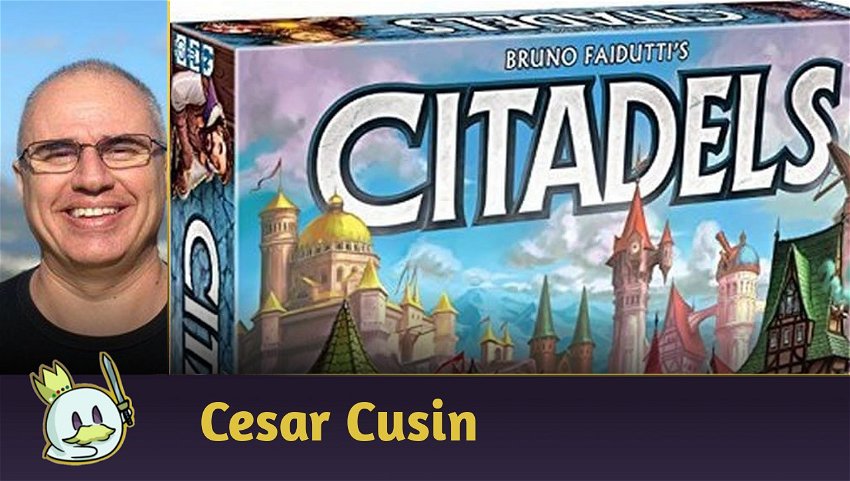












— Commenti 0
, Reazioni 1
Diventa il primo a commentare